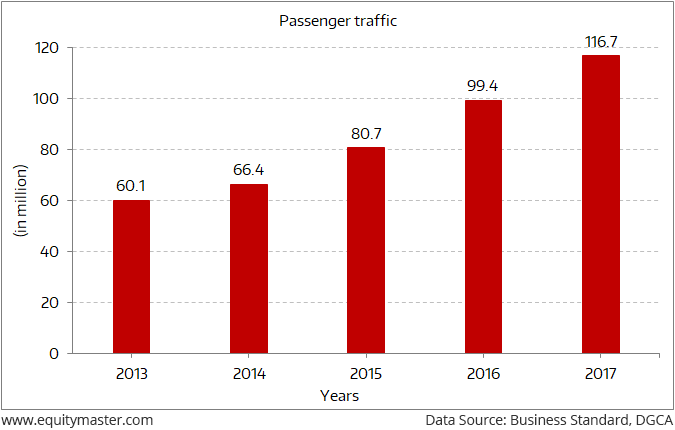Asian shares were subdued on Thursday ahead of anxiously-awaited Sino-US trade talks, while the US dollar consolidated recent bumper gains after the Federal Reserve reaffirmed the outlook for more rate hikes this year. Shares in Hong Kong are lower today as the Hang Seng falls 1.7%. While, the Shanghai Composite is trading down by 0.2%. US stocks fell on Wednesday as potential US restrictions on Chinese telecom companies reinforced investor concerns about worsening trade relations between the United States and China.
Back home, India share markets opened the day marginally lower. The BSE Sensex is trading down by 20 points while the NSE Nifty is trading down by 11 points. The BSE Mid Cap index and BSE Small Cap index both opened the day down by 0.5%.
Barring metal stocks, all sectoral indices have opened the day in red with realty stocks and capital goods stockswitnessing maximum selling pressure.
The rupee is trading at 66.66 to the US$.
HCL Technologies share price fell over 4.7% after the company reported a 9.8% dip in consolidated net profit for the fourth quarter ended March 2018 at Rs 22.3 billion against Rs 24.7 billion for the same quarter in 2017.
In the news from the aviation space. Indigo share price plunged over 11.1% in the opening trade after its net profit for the March quarter fell 73% from a year ago on costlier fuel, lower yields and aircraft groundings.
The airline, run by InterGlobe Aviation Ltd, reported a net profit of Rs 1.2 billion during the quarter, down from Rs 4.4 billion a year ago.
Revenue, however, grew 17.8% from Rs 51.4 billion a year ago to Rs 60.6 billion in the latest quarter. Fuel cost during the quarter rose to Rs 23.4 billion from Rs 17.5 billion a year ago.
IndiGo said its finance income during the March quarter earned from fixed deposits and mutual funds stood at Rs 2.5 billion.
For the fiscal year 2017-18, IndiGo reported a profit of Rs 22.4 billion, up 35% from Rs 16.6 billion in 2016-17. The airline's revenue stood at Rs 239.7 billion during FY18, up 23.74% from Rs 193.7 billion in FY17, as the airline flew more passengers during the year and benefitted from relatively lower oil prices during the first couple of quarters of the year (FY18).
The pressure on passenger yields was seen across the industry because of weak pricing environment. However, in the current financial year, yields have improved.
IndiGo has been testing troubled waters for a while now. Earlier last month, the carrier had to ground several of its planes due to technical glitches in engines supplied by Pratt & Whitney engines, leading to a loss of over US$600 million in market value.
The airline also received flak on account of a few highly publicised customer run-ins with the staff. The latest blow came recently when President and Whole Time Director Aditya Ghosh stepped down from his post.
Going ahead, IndiGo hopes to seamlessly operate three different kinds of planes - turboprop (ATR), narrow-bodied (Airbus A320/A321) and wide-bodied fleets respectively - and keep its costs low at the same time.
Speaking of India's aviation industry, this space has been on a high-growth trajectory. India's domestic air traffic has seen a prolific growth of 20-25% during 2015 and 2016. And in 2017, it tapered to 17.4%. However, for the first time, domestic air traffic crossed an important landmark of 100 million passengers in a calendar year.
Indian Aviation Spreading its Wings

Air travel has recorded double-digit growth for 40 consecutive months, thanks to low fares, the addition of new flights/destinations, and overall growth in the economy.
What's foreseeable for India's aviation traffic in 2018 is some pressure on the back of the consistent rise in crude oil prices. Earlier this year, Brent crude oil briefly breached US$70 per barrel and touched its highest level since December 2014. Crude prices have been driven up by production curbs in OPEC nations and Russia, as well as by robust demand on the back of healthy global economic growth.
Oil prices are closely monitored by the Indian air carriers, as aviation turbine fuel is their single largest input cost. A sharp rise in the cost of fuel puts pressure on margins, and consequently an increase in air fares.
Although air travel is becoming the new normal, investors need to understand the industry dynamics before buying up aviation stocks.
Moving on to the news from power sector. Tata Power on Wednesday reported a profit of Rs 14.8 billion for March quarter on higher sales. This compares with a loss of Rs 2.3 billion in the same period last year.
The firm's operating profit for the quarter was up 18% at Rs 14.5 billion compared with Rs 12.2 billion in the year-ago period, mainly due to renewable business and all-round good performance of all businesses.
The board has recommended a dividend of Rs 1.3 per share.
During the quarter ended 31 March, Tata Power's consolidated revenue rose to Rs 78.5 billion, up 14% against Rs 68.8 billion last year on higher power generation and sales.
The renewable business of the company crossed Rs 4.3 billion of PAT and 2,349 MW capacity mark. During the year, it added 276 MW
Tata Power share price opened the day up by 0.9%.
This article was originally published in English at www.equitymaster.com
Read the complete Indian stock market update. For the terms of use, go here.
No comments:
Post a Comment